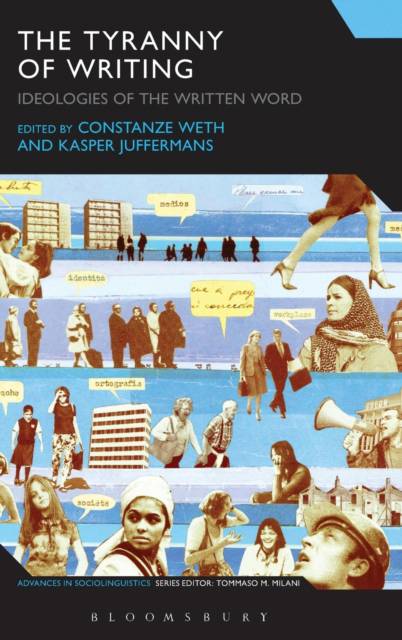
Bedankt voor het vertrouwen het afgelopen jaar! Om jou te bedanken bieden we GRATIS verzending (in België) aan op alles gedurende de hele maand januari.
- Afhalen na 1 uur in een winkel met voorraad
- In januari gratis thuislevering in België
- Ruim aanbod met 7 miljoen producten
Bedankt voor het vertrouwen het afgelopen jaar! Om jou te bedanken bieden we GRATIS verzending (in België) aan op alles gedurende de hele maand januari.
- Afhalen na 1 uur in een winkel met voorraad
- In januari gratis thuislevering in België
- Ruim aanbod met 7 miljoen producten
Zoeken
The Tyranny of Writing
Ideologies of the Written Word
€ 296,95
+ 593 punten
Omschrijving
This book examines the powerful role of writing in society. The invention of writing, independently at various places and times in history, always stood at the cradle of powerful civilizations. It is impossible to imagine modern life without writing. As individuals and social groups we hold high expectations of its potential for societal and personal development. Globally, huge resources have been and are being invested in promoting literacy worldwide. So what could possibly be tyrannical about writing?
The title is inspired by Ferdinand de Saussure's argument against writing as an object of linguistic research and what he called la tyrannie de la lettre. His critique denounced writing as an imperfect, distorted image of speech that obscures our view of language and its structure. The chapters of the book, written by experts in language and literacy studies, go beyond this and explore tyrannical aspects of writing in society through history and around the world: from Medieval Novgorod, the European Renaissance and 19th-century France and Germany over colonial Sudan to postcolonial Sri Lanka and Senegal and present-day Hong Kong and Central China to the Netherlands and Spain. The metaphor of 'tyranny of writing' serves as a heuristic for exploring ideologies of language and literacy in culture and society and tensions and contradictions between the written and the spoken word.
The title is inspired by Ferdinand de Saussure's argument against writing as an object of linguistic research and what he called la tyrannie de la lettre. His critique denounced writing as an imperfect, distorted image of speech that obscures our view of language and its structure. The chapters of the book, written by experts in language and literacy studies, go beyond this and explore tyrannical aspects of writing in society through history and around the world: from Medieval Novgorod, the European Renaissance and 19th-century France and Germany over colonial Sudan to postcolonial Sri Lanka and Senegal and present-day Hong Kong and Central China to the Netherlands and Spain. The metaphor of 'tyranny of writing' serves as a heuristic for exploring ideologies of language and literacy in culture and society and tensions and contradictions between the written and the spoken word.
Specificaties
Betrokkenen
- Uitgeverij:
Inhoud
- Aantal bladzijden:
- 240
- Taal:
- Engels
- Reeks:
Eigenschappen
- Productcode (EAN):
- 9781474292467
- Verschijningsdatum:
- 25/01/2018
- Uitvoering:
- Hardcover
- Formaat:
- Genaaid
- Afmetingen:
- 155 mm x 236 mm
- Gewicht:
- 476 g

Alleen bij Standaard Boekhandel
+ 593 punten op je klantenkaart van Standaard Boekhandel
Beoordelingen
We publiceren alleen reviews die voldoen aan de voorwaarden voor reviews. Bekijk onze voorwaarden voor reviews.








